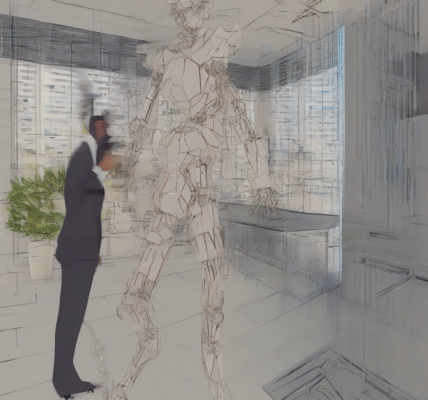Demystifying Commercial Insurance Liability: A Comprehensive Guide
Commercial insurance liability is a crucial aspect of protecting your business from financial ruin caused by accidents, injuries, or property damage. Understanding its intricacies is paramount for responsible business ownership. This guide will delve into the various facets of commercial liability insurance, providing a thorough understanding of its scope, types, and importance.
What is Commercial Insurance Liability?
Commercial liability insurance is a type of insurance policy that protects businesses from financial losses arising from claims of bodily injury, property damage, or personal and advertising injury caused by their operations or products. Essentially, it safeguards your business against the legal and financial ramifications of accidents or incidents that may occur due to your business activities.
Types of Commercial Liability Insurance
-
General Liability Insurance:
This is the most common type of commercial liability insurance. It covers claims arising from bodily injury or property damage caused by your business operations on your premises or elsewhere. This includes things like a customer slipping and falling in your store, or damage to a client’s property during a service call.
-
Product Liability Insurance:
If your business manufactures, distributes, or sells products, this coverage protects you against claims of injury or damage caused by defective products. This is crucial for businesses dealing with physical goods.
-
Professional Liability Insurance (Errors and Omissions Insurance):
This insurance is vital for professionals such as doctors, lawyers, consultants, and accountants. It protects against claims of negligence or mistakes in professional services that result in financial loss to the client.
-
Commercial Auto Liability Insurance:
This covers liability arising from accidents involving company vehicles. It protects your business against claims for bodily injury or property damage caused by your employees while driving company cars.
-
Umbrella Liability Insurance:
This provides excess liability coverage above and beyond your other liability policies. It acts as a safety net, offering higher limits of liability in case of catastrophic events or significant claims.
-
Directors and Officers (D&O) Liability Insurance:
This policy protects directors and officers of a corporation from claims alleging mismanagement, breach of fiduciary duty, or other wrongful acts in their capacity as corporate leaders.
-
Workers’ Compensation Insurance:
While not strictly liability insurance, it’s essential to mention. It covers medical expenses and lost wages for employees injured on the job, regardless of fault. It protects your business from lawsuits related to workplace injuries.
Key Components of a Commercial Liability Policy
-
Coverage Limits:
This defines the maximum amount the insurance company will pay for covered claims. It’s crucial to choose limits that adequately protect your business’s assets.
-
Deductible:
This is the amount you must pay out-of-pocket before the insurance coverage kicks in. Higher deductibles usually mean lower premiums.
-
Exclusions:
These are specific events or situations that are not covered by the policy. Carefully review exclusions to understand what is and isn’t covered.
-
Premium:
This is the amount you pay to maintain the insurance policy. Premiums are influenced by factors such as the type of business, risk level, and coverage limits.
-
Claims Process:
Understanding the claims process is critical. This typically involves reporting the incident promptly to your insurer and cooperating with their investigation.
Factors Affecting Commercial Liability Insurance Premiums
-
Industry:
Some industries are inherently riskier than others, leading to higher premiums.
-
Business Size:
Larger businesses often have higher premiums due to increased potential liability.
-
Location:
Businesses in high-risk areas may face higher premiums due to increased likelihood of accidents or claims.
-
Number of Employees:
More employees can lead to a higher risk of accidents and higher premiums.
-
Claim History:
A history of claims can significantly impact your premiums.
-
Safety Measures:
Implementing robust safety programs can lower premiums by demonstrating a commitment to risk mitigation.
The Importance of Commercial Liability Insurance
Commercial liability insurance is not just a cost; it’s a vital investment for protecting your business. The potential costs of lawsuits, medical expenses, and property damage can quickly bankrupt a business, even a successful one. Liability insurance provides a crucial financial safety net, allowing you to focus on running your business rather than dealing with the aftermath of an accident.
Choosing the Right Commercial Liability Insurance
Selecting the appropriate commercial liability insurance requires careful consideration. You need to assess your business’s specific risks and needs. It’s advisable to consult with an insurance professional who can help you determine the right coverage for your unique circumstances. Don’t hesitate to compare quotes from multiple insurers to find the best value and coverage.
Understanding Policy Renewals and Changes
Regularly review your commercial liability insurance policy. As your business grows and changes, your insurance needs may evolve. Be sure to inform your insurer of any significant changes in your operations, location, or number of employees to ensure your coverage remains adequate. Understanding the renewal process and any potential changes in premiums is crucial for effective risk management.
Claims Process: What to Do in Case of an Incident
- Report the incident to your insurer promptly.
- Gather all relevant information, including witness statements, police reports, and medical records.
- Cooperate fully with your insurer’s investigation.
- Do not admit fault or make any statements without consulting your insurer.
- Keep accurate records of all communication and documentation related to the incident.
Conclusion (Not included as per instructions)




